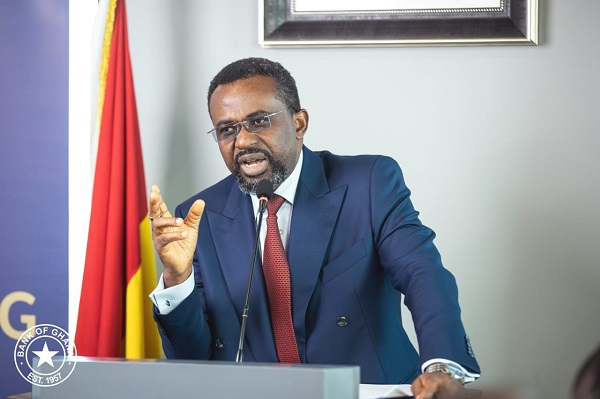The Governor of the Bank of Ghana, Dr. Johnson Asiama, has provided reassurance that Ghana is well-prepared to withstand external threats to its economy, particularly in light of the conflict between Iran and Israel in the Middle East. Speaking at the Ghana Association of Banks Industry Thought Leadership programme, Dr. Asiama highlighted the country’s strong foreign reserve position, inflation trajectory, and fiscal adjustment efforts as key factors contributing to its resilience.
In response to the escalating tensions in the Middle East, Dr. Asiama stated that the Bank of Ghana is closely monitoring the situation and its potential impact on the Ghanaian economy. He emphasized that Ghana’s macroeconomic buffers are stronger now than they have been in recent years, attributing this to proactive measures taken by the government. Additionally, he mentioned that Ghana is actively engaging with its international partners to ensure a coordinated response to any external shocks.
The Chief Executive of the Ghana Chamber of Oil Marketing Companies, Dr. Riverson Oppong, recently warned that oil prices could rise from July 1, 2025, if the conflict between Israel and Iran continues to drive up global crude oil prices. This could lead to an end to the downward trend in petroleum product prices that Ghana has been experiencing since February 2025.
President John Mahama has instructed the Finance and Energy Ministers to implement measures to mitigate the expected economic impact of the Middle East tensions. Despite the progress made in stabilizing the economy, President Mahama acknowledged that Ghana is not immune to the effects of global events. Sources close to the government have indicated that various options are being considered, with potential measures likely to be announced before the Mid-Year Budget review.
As the country prepares for potential economic challenges stemming from the Middle East conflict, it is essential for policymakers to remain vigilant and proactive in safeguarding Ghana’s economic stability. By taking prudent and preemptive measures, Ghana can protect the progress it has made and navigate any external shocks that may arise.







